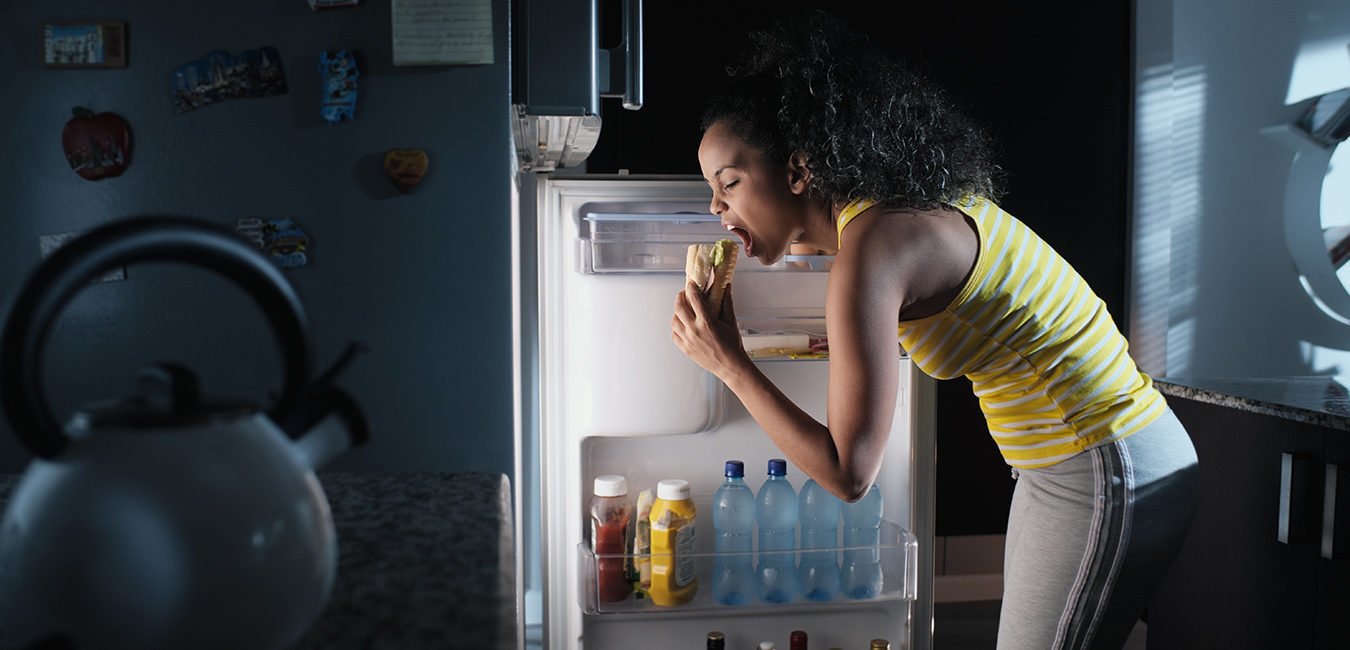The rich foods and sweet treats of the holidays can make it hard to keep a heart-healthy diet. But one small change in your eating habits could help: eating the day’s larger meals in the middle of the day.
You probably know that what you eat and how much you eat is very important to your heart and your health. But when you eat also makes a difference. A recent study reported at the American Heart Association’s annual meeting that eating high-calorie meals after 6 P.M. significantly increases the risk for high blood pressure and high blood sugar levels that can lead to type 2 diabetes.
Blood pressure usually drops at night, which allows the body to rest. But when it stays high, it can increase the risk for heart attacks and strokes.
Other studies have also found risks to eating late in the day. In research from the University of Pennsylvania, adults ate 3 meals and 2 snacks every day only between 8 a.m. and 7 p.m. for 8 weeks. Then they switched to eating only between noon and 11 p.m. for 8 weeks.
When the subjects ate later in the day, they gained weight and had increases in insulin, blood sugar, cholesterol, and triglycerides—a dangerous type of fat in the blood. Each of these changes can harm the heart.
People who eat more in the evening also have higher levels of inflammation, according to data from the University of California at San Diego. The more calories they ate between 5 P.M.. and midnight, the higher their levels of C-reactive protein. C-reactive protein may warn of inflammation in the body that can harm the heart.
So while you’re planning for holiday festivities, consider the timing of celebrations that involve eating. You can help your heart and those of your family and friends by scheduling an open house during the day or making lunch the big meal of the day instead of having holiday dinners in the evening. If you get hungry later at night, eat a small healthy snack of nuts, fruit, and/or raw veggies.
Here are other ways to eat heart smart at holiday gatherings:
- Choose a smaller plate to keep portions moderate.
- Limit alcohol and other high-calorie drinks like eggnog and punch. For a festive low-calorie option, mix white or red wine with seltzer water and add a splash of lemon or lime, or try some of the newer alcohol-removed wines.
- Try to wait at least two hours before you go back for seconds.
- Use fat-free yogurt, light cream cheese, and low-fat milk in place of high-fat ingredients.
- Substitute roasted or grilled vegetables for heavy casseroles.
- Experiment with healthier desserts, such as strawberries dipped in dark chocolate.
- Take a group walk after holiday meals and burn a few calories.
With a little planning, you can enjoy the big day while keeping your heart health on track, too!

